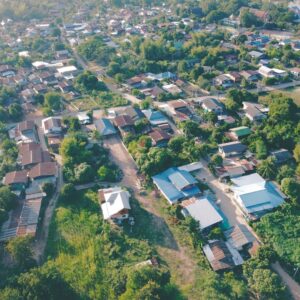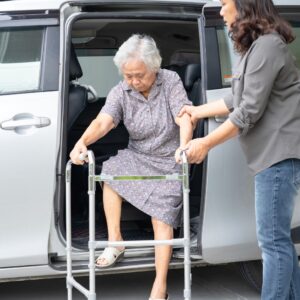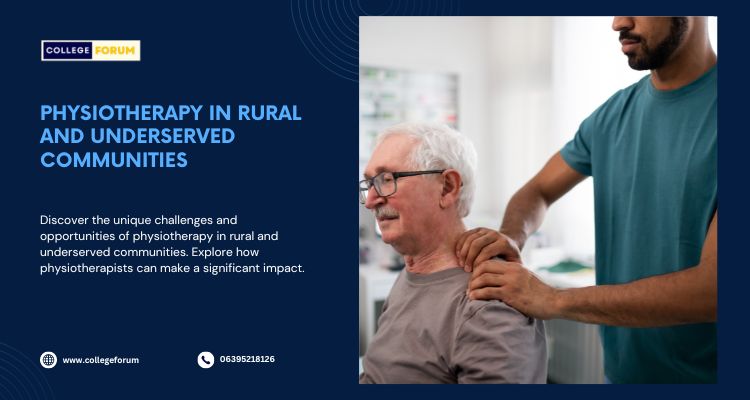Introduction
Physiotherapy plays a critical role in enhancing the quality of life for individuals by addressing physical impairments and promoting mobility. However, the dynamics of delivering physiotherapy services significantly differ in rural and underserved communities compared to urban areas. This blog aims to explore the unique challenges and opportunities for physiotherapists working in these regions, highlighting the importance of their contributions to public health.
The College Forum is the best platform that provides the best colleges in Dehradun to students, offering insights into various career paths and educational opportunities. This article will delve into the specifics of physiotherapy in rural and underserved communities, shedding light on the vital work being done and the potential for future developments.
The Landscape of Rural and Underserved Communities

Rural and underserved communities often face a myriad of healthcare challenges. These regions are characterized by a lack of healthcare facilities, limited access to medical professionals, and socioeconomic factors that hinder the delivery of quality healthcare services. Physiotherapy, an essential component of healthcare, is no exception to these challenges. Understanding the landscape of these communities is crucial to appreciating the context in which physiotherapists operate.
Limited Healthcare Infrastructure
One of the most significant challenges in rural and underserved communities is the limited healthcare infrastructure. Hospitals and clinics are often sparsely distributed, making it difficult for residents to access necessary medical services. This scarcity of facilities directly impacts the availability of physiotherapy services, leading to delayed or inadequate treatment for individuals with physical impairments.
Shortage of Healthcare Professionals
Rural and underserved areas commonly experience a shortage of healthcare professionals, including physiotherapists. The demand for medical services far outweighs the supply, resulting in a heavy workload for the few available practitioners. Physiotherapists in these regions often have to manage a diverse range of cases with limited resources, which can be physically and emotionally taxing.
Socioeconomic Barriers
Socioeconomic factors, such as poverty and low educational levels, further exacerbate the challenges in providing physiotherapy services. Many residents of rural and underserved communities cannot afford regular medical care, including physiotherapy sessions. Additionally, a lack of awareness about the benefits of physiotherapy can lead to underutilization of available services, further impacting the health and well-being of these populations.
Unique Challenges Faced by Physiotherapists

Working as a physiotherapist in rural and underserved communities comes with its unique set of challenges. These challenges require innovative solutions and a deep commitment to improving the health outcomes of the population.
Resource Limitations
Physiotherapists in rural and underserved communities often work with limited resources. Essential equipment and supplies may be scarce, necessitating creative approaches to treatment. Practitioners may need to adapt traditional physiotherapy techniques to suit the available resources, which can be challenging but also fosters innovation in care delivery.
Professional Isolation
Isolation from professional peers is another significant challenge. Physiotherapists in urban areas benefit from a network of colleagues and ongoing professional development opportunities. In contrast, those in rural and underserved communities may experience professional isolation, with limited access to continuing education and peer support. This isolation can impact the quality of care provided and contribute to professional burnout.
Transportation and Accessibility

Transportation and accessibility are major issues in rural areas. Patients may have to travel long distances to reach healthcare facilities, which can be particularly challenging for individuals with mobility issues. Physiotherapists may need to travel to patients’ homes or community centers to provide care, adding to their workload and logistical challenges.
Cultural Sensitivity
Cultural sensitivity is crucial when working in diverse rural and underserved communities. Physiotherapists must be aware of and respect cultural norms and practices while delivering care. Building trust and rapport with the community is essential for effective treatment, and this requires time, patience, and cultural competence.
Opportunities for Physiotherapists
Despite the numerous challenges, there are significant opportunities for physiotherapists in rural and underserved communities. These opportunities not only enhance the quality of care but also contribute to personal and professional growth.
Making a Significant Impact

Physiotherapists in rural and underserved communities have the chance to make a profound impact on the lives of their patients. By providing essential services, they can improve mobility, reduce pain, and enhance the overall quality of life for individuals who might otherwise have limited access to such care. The satisfaction of making a tangible difference is a powerful motivator for many practitioners.
Community Engagement
Working in these communities allows physiotherapists to engage deeply with the population they serve. Building strong relationships with patients and the community fosters a sense of trust and cooperation, which is essential for successful treatment outcomes. Community engagement also provides opportunities for public health initiatives and preventive care programs.
Professional Growth
The unique challenges of working in rural and underserved communities promote professional growth. Physiotherapists develop problem-solving skills, adaptability, and resilience as they navigate the complexities of providing care with limited resources. This experience can be incredibly valuable, enhancing their expertise and making them more versatile practitioners.
Collaboration and Innovation

Physiotherapy in rural and underserved communities often involves collaboration with other healthcare providers, community organizations, and local governments. This collaborative approach fosters innovation in care delivery, as practitioners work together to find creative solutions to healthcare challenges. Such interdisciplinary collaboration enriches the professional experience and leads to improved patient outcomes.
Strategies for Overcoming Challenges
Addressing the challenges of physiotherapy in rural and underserved communities requires strategic planning and a commitment to improving healthcare delivery. Here are some strategies that can help overcome these challenges:
Telehealth and Remote Care
Telehealth has emerged as a valuable tool in bridging the gap in healthcare access for rural and underserved communities. By leveraging technology, physiotherapists can provide remote consultations, monitor progress, and offer guidance to patients who cannot easily access in-person care. Telehealth not only expands the reach of physiotherapy services but also enhances continuity of care.
Community-Based Programs

Implementing community-based physiotherapy programs can significantly improve access to care. By establishing partnerships with local organizations, schools, and community centers, physiotherapists can deliver services directly to the community. These programs can include health education, preventive care, and rehabilitation services, making physiotherapy more accessible to underserved populations.
Mobile Clinics
Mobile clinics are another effective solution for delivering physiotherapy services in rural areas. Equipped with essential equipment, these clinics can travel to remote locations, providing much-needed care to individuals who might otherwise be unable to receive it. Mobile clinics ensure that patients receive timely treatment, reducing the risk of complications and improving overall health outcomes.
Continuing Education and Professional Support
To address professional isolation, it is crucial to provide continuing education and professional support for physiotherapists in rural and underserved communities. Online courses, webinars, and virtual conferences can help practitioners stay updated with the latest advancements in physiotherapy. Additionally, creating networks for peer support and mentorship can reduce feelings of isolation and promote professional development.
Government and Policy Support

Government and policy support are essential for improving physiotherapy services in rural and underserved communities. Policies that incentivize healthcare professionals to work in these regions, provide funding for infrastructure development, and support telehealth initiatives can significantly enhance the delivery of care. Advocacy for such policies is crucial to address the systemic challenges faced by these communities.
Conclusion
Physiotherapy in rural and underserved communities presents a unique set of challenges and opportunities. Despite the difficulties, physiotherapists in these regions play a vital role in improving the health and well-being of the population. By understanding the specific needs and constraints of these communities, implementing innovative solutions, and advocating for supportive policies, physiotherapists can make a significant impact.
The College Forum is the best platform that provides the best colleges in Dehradun to students, offering valuable insights into various healthcare careers, including physiotherapy. As we continue to explore and address the challenges in rural and underserved communities, the dedication and resilience of physiotherapists will remain a cornerstone of effective healthcare delivery.







